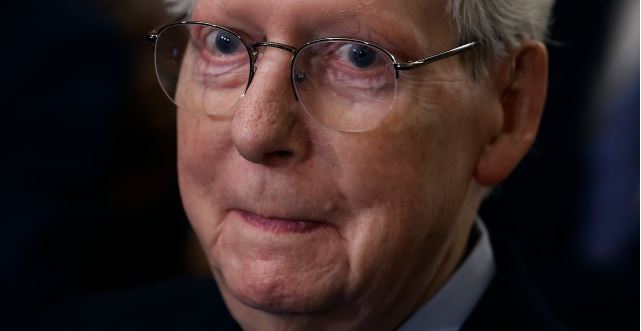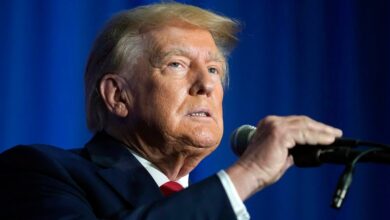Shift in the GOP: McConnell’s Departure Signals New Era Beyond Reagan and Trump

The announcement by Senate Minority Leader Mitch McConnell regarding his intention to step down from Senate leadership in November marks a significant moment in contemporary American politics, reflecting the ongoing transformation within the Republican Party. McConnell’s decision to step aside after years of leadership underscores the party’s evolving identity, moving from the era of Ronald Reagan to a period defined by the tone and vision of former President Donald Trump.
Mitch McConnell, a key figure in the Senate for several decades, has been instrumental in shaping the legislative and strategic direction of the Republican Party. His leadership has seen critical moments, including judicial appointments, legislative battles, and the navigation of complex political landscapes. McConnell’s tenure as leader has been characterized by his tactical acumen, often working within the intricacies of Senate rules to further the party’s agenda.
The shift in the Republican Party’s direction, from the principles and policies associated with Ronald Reagan to those championed by Donald Trump, has been both profound and contentious. This transition reflects broader changes in the party’s base, priorities, and political strategies. Under Trump’s influence, the party has embraced a more populist approach, focusing on issues such as immigration, trade, and a skepticism of traditional political establishments and alliances.
McConnell’s decision to step down signals a pivotal moment for the GOP as it grapples with its future direction. The choice of his successor will be closely watched, as it could indicate the trajectory the party intends to take leading up to future elections. Potential candidates for the leadership position will likely represent various factions within the party, from traditional conservatives to those aligned more closely with Trump’s vision.
This leadership change comes at a time when the Republican Party is assessing its path forward, balancing the appeal of Trump’s populist message with the need to broaden its base and address internal divisions. The impact of McConnell’s departure on the party’s strategy, legislative agenda, and approach to governance will be significant, potentially shaping the GOP’s identity for years to come.
As the Republican Party navigates this transitional period, the legacy of McConnell’s leadership and the direction chosen by his successor will be critical in defining its role and effectiveness in a rapidly changing political landscape. The evolution of the GOP, from the era of Reagan to the influence of Trump, continues to be a central theme in American political discourse, reflecting broader debates about the future of conservatism and the Republican Party’s place in it.




